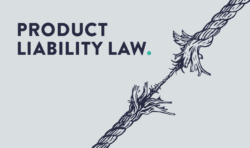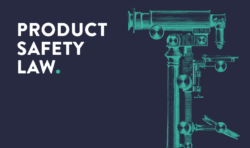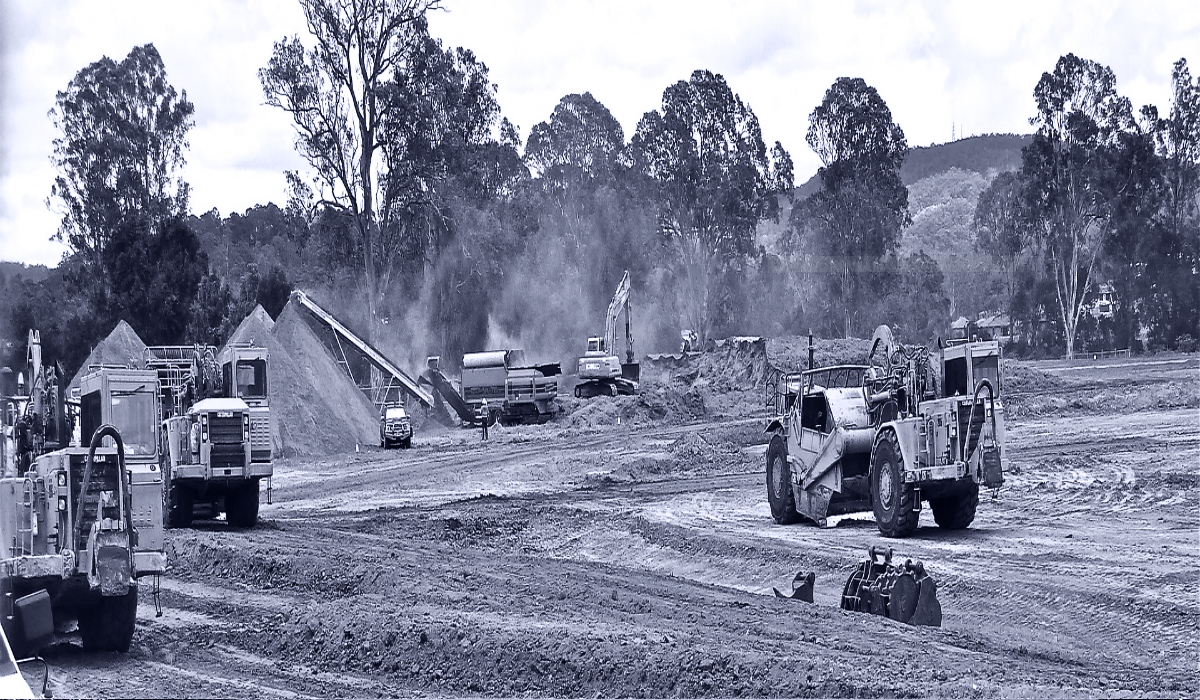The HinSchG serves to implement Directive (EU) 2019/1937 of 23.10.2019 on the protection of persons who report infringements of Union law. Before the HinSchG came into force, whistleblowers had to fear disadvantages if they obtained information about violations of the law in the course of their professional activities and then reported or disclosed them. The HinSchG is intended to expand the hitherto incomplete and inadequate protection of whistleblowers and to recognize their contribution to the detection and punishment of wrongdoing (cf. draft bill of the Federal Ministry of Justice, p. 1).
The detection and sanctioning of malpractices promoted in this way will lead to an increase in the reporting of violations of product law obligations and missing product conformities by their own employees to manufacturers and other economic operators. Knowledge of non-conformities may activate product safety and product liability law obligations to act. Against this background, economic operators must not close their eyes to the reported violations.
The implementation of the obligations under the HinSchG can be linked to obligations under product law. This is one of the reasons why it is necessary to consider the obligations of the HinSchG in terms of product law in order to identify interfaces and exploit synergy effects.
I. Objective of the HinSchG
According to Sec. 1 para. 1 HinSchG, the aim of the HinSchG is to protect natural persons who have obtained information about infringements in connection with their professional activities or in the run-up to such activities. In addition, the persons who are the subject of a report or disclosure are also to be protected (Sec. 1 para. 1 HinSchG).
Indirectly, the HinSchG also serves to uncover, correct and punish abuses and thus non-conformities in product law. Thus, the HinSchG indirectly promotes a high level of consumer protection within the meaning of Art. 1 para. 1 Regulation (EU) 2023/988 (so-called GPSR) and the protection of human rights and the environment within the meaning of Sec. 3 para. 1 German Supply Chain Sourcing Obligations Act (LkSG).
II. Scope of application
From the perspective of product law, all economic operators – depending on the size of the company – can in principle be subject to the personal scope of application of the HinSchG, Sec. 12 para. 1 sentence 1 HinSchG.
The material scope of application includes the reporting and disclosure of information on the violations listed exhaustively in Sec. 2 para. 1 HinSchG. These include, in particular, violations of legal provisions
- with specifications for product safety and conformity,
- with specifications for environmental protection and
- on quality and safety standards for organs and substances of human origin, medicinal products for human and veterinary use, medical devices, and cross-border patient care.
The action-specific scope of application is opened with regard to economic operators if a whistleblower makes a report or disclosure of information on infringements and the economic operator must deal with this report in accordance with the provisions of the HinSchG. A whistleblower is entitled to make a report or disclosure if (1) there are reasonable grounds for suspicion or knowledge of actual or potential violations, (2) these violations are related to the professional activities of the whistleblower, and (3) they have already been committed or are very likely to be committed (cf. Sec. 3 para. 3 HinSchG). In addition, attempts to conceal violations are also covered by the scope of application of the HinSchG.
Reported violations in the product law-related environment can be both a lack of conformity with material product requirements and a violation of merely formal information, documentation or labeling obligations. Specifically, in the scope of application of the GPSR, a reported violation may, for example, involve non-compliance with the general safety requirement under Art. 5 GPSR. According to this, economic operators may only place safe products on the market or make them available on the market.
III. Obligation to establish an internal reporting office
From a certain size (usually 50 employees), the economic operator has the obligation to set up and operate at least one office for internal reports to which employees can turn (internal reporting office) in accordance with Sec. 12 para. 1 sentence 1 HinSchG. According to Sec. 13 para. 1 HinSchG, the tasks of the internal reporting office include the operation of reporting channels (Sec. 16 HinSchG), the implementation of the procedure (Sec. 17 HinSchG) and the taking of follow-up measures (Sec. 18 HinSchG).
For this purpose, the economic operator may entrust either a person employed by him or by the respective organizational unit, a work unit consisting of several employees or a third party with the tasks of an internal reporting office (Sec. 14 para. 1 HinSchG).
Group companies thus have the option of setting up a joint, group-wide reporting office for all companies in the group. Furthermore, several economic operators that generally employ between 50 and 249 employees can set up and operate a joint internal reporting office (Sec. 14 para. 2 HinSchG).
Commissioning a third party to set up and operate the internal reporting office can relieve the burden on small and medium-sized companies in particular. Explicit mention is made in the explanatory memorandum to the law of lawyers who can assume the tasks of the internal reporting office as ombudspersons. One of the advantages of hiring a lawyer is that he or she knows the company and the regulatory context in which it operates and can classify incoming reports at an early stage. This allows the company to focus quickly on the measures that may need to be taken.
With regard to the LkSG, there are also opportunities for synergy effects. Incoming notices also play a central role in the LkSG, cf. Sec. 8 para. 1 LkSG. For the purpose of receiving notices, the economic operator must implement a complaint procedure (Sec. 8 para. 2, 4 LkSG).
IV. Right to choose between internal and external reporting
Pursuant to Sec. 7 para. 1 HinSchG, the person providing the information has the right to choose whether to contact an internal or external reporting office with information about a violation. Although they should prefer to report to an internal reporting office if effective internal action can be taken against the violation and they do not have to fear reprisals, Sec. 7 para. 1 sentence 2 HinSchG does not represent an obligation. Because reporting to an external reporting office is usually associated with disadvantages for the economic operator, it should thus work towards an open error and feedback culture at an early stage and encourage its employees to use internal communication channels. In order to proactively promote internal reporting and eliminate non-conformities, reward programs (comparable to so-called bug bounty programs) are conceivable, with which the economic operator rewards whistleblowers.
V. Documentation requirements
Pursuant to Sec. 11 para. 1 HinSchG, the person responsible for receiving reports at a reporting office must document all incoming reports in a permanently retrievable manner, taking into account the confidentiality requirement. The documentation requirements differ depending on whether the report was received orally or in writing. In order to comply with the documentation requirements and to make the procedure following the report as efficient as possible, the use of documentation management systems can be useful.
Thus, the manufacturer of a product is subject to certain obligations both before and after placing it on the market, which require a certain degree of organization. According to Art. 9 para. 2, 3 GPSR, for example, the manufacturer must prepare technical documentation and keep it available for a period of ten years. According to Art. 9 para. 12 GPSR, the manufacturer must document the information received via publicly accessible communication channels in an internal register. Once a product has been placed on the market, the manufacturer is subject to so-called product monitoring obligations: The manufacturer must obtain and evaluate information about his product. Experience has shown that the use of document and documentation management systems is therefore indispensable above a certain company size.
VI. Procedure for Receipt of Notifications and Follow-up Actions
Sec. 17 para. 1 HinSchG regulates the procedure for internal reports. According to this, the internal reporting office must confirm receipt of the report, the opening of the scope of application of the HinSchG and then check the validity of the report received. In doing so, the reporting office must maintain contact with the person making the report and, if necessary, take follow-up measures (Sec. 18 HinSchG). The follow-up measures to be taken pursuant to Sec. 18 HinSchG include, in particular, internal investigations, referral of the person making the report to other offices, discontinuation of the proceedings or transfer of the proceedings to a competent organizational unit or to a competent authority.
For the economic operator, a close interlocking of product safety procedures with the requirements of Sec. 17, 18 HinSchG may be appropriate, especially if the notifications concern product safety or conformity. When appointing an ombudsperson, care must be taken to define the procedures for handling reports in advance. At a minimum, the legal requirements according to Sec. 17, 18 HinSchG must be taken into account. Ideally, the schedule should be drawn up in advance and the procedure should be defined in as much detail as possible so that the next steps are already clear in the event of a report. If a lawyer is involved as an internal reporting office, he or she can, for example, check the validity of the report, ask the employer appropriate questions and make suggestions for corrective measures.
Finally, it is also obvious to digitally map the process to ensure compliance with the requirements of Sec. 17, 18 HinSchG. In this way, the workflow can be integrated seamlessly and with little effort into existing processes in the company. In this context, solutions that can be used to digitize standardizable decision-making processes are particularly useful.
Depending on the results of the investigations, the economic operator is subject to the corresponding obligations under product safety and product liability law in order to remedy any non-conformities and to avert product risks by means of appropriate field measures.
VIII. Conclusion
If they have not already done so, economic operators should familiarize themselves with the obligations of the HinSchG in a timely manner and, in particular, comply with the obligation to set up an internal reporting office. Private employers with generally 50 to 249 employees have until 17.12.2023 to do so (cf. Sec. 42 para. 1 HinSchG). Otherwise, violations of certain obligations may result in fines of up to EUR 50,000 as early as 01.12.2023 (cf. Sec. 42 para. 2, 40 HinSchG).
For economic operators, a comparison with other product-related obligations may well be worthwhile. In this way, overlaps between the different requirements can be identified and synergy effects can be exploited in their implementation.
Do you have any questions about this news or would you like to discuss it with the author? Please contact: Dr. Gerhard Wiebe







